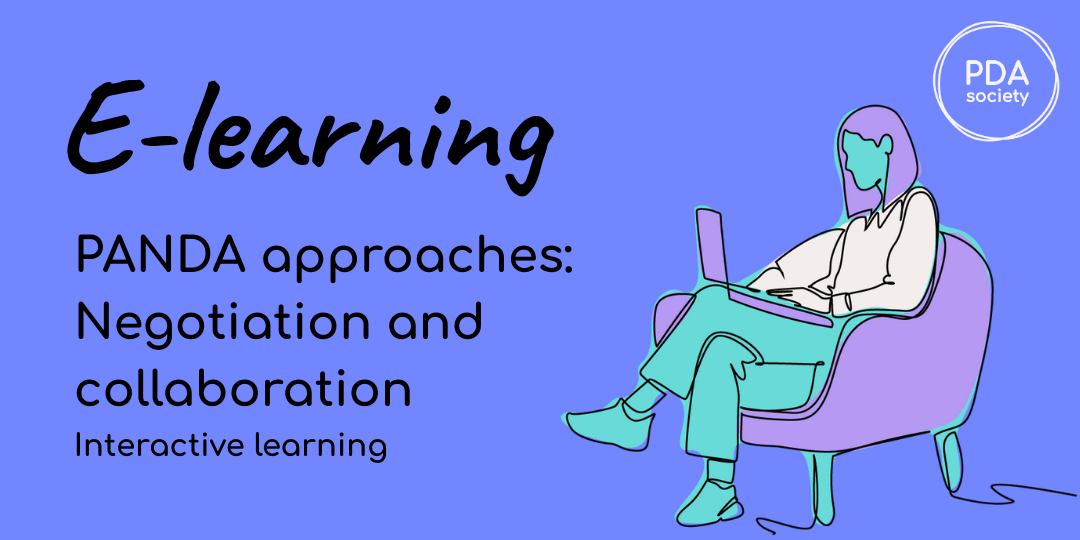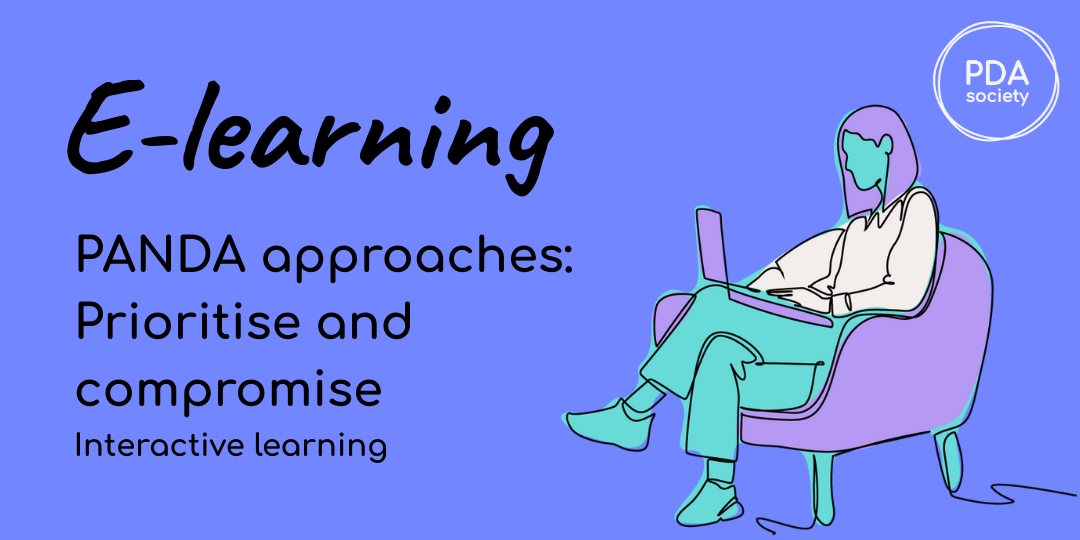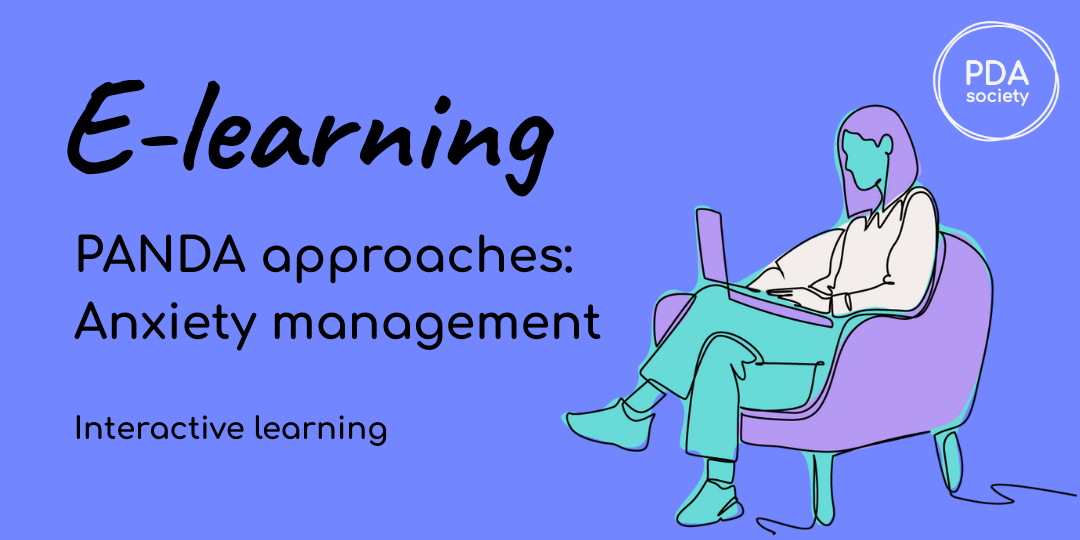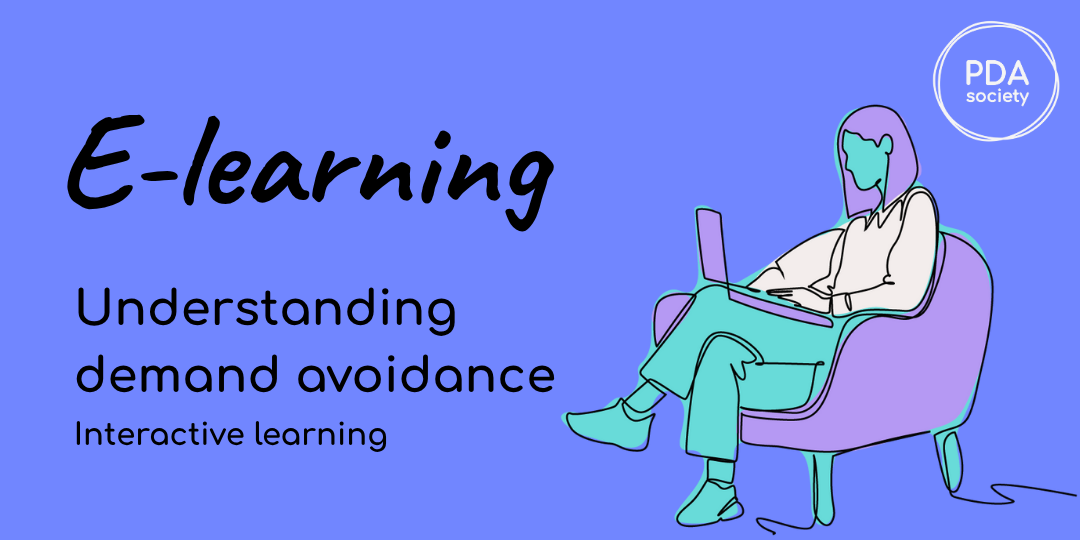
PANDA: Negotiation and collaboration
This module explores approaches that invite cooperation, build autonomy, and help you move through tricky moments together.
Overview
This module is part of the PANDA series – a set of guiding ideas that support each other, rather than a checklist to follow. You can dip into the sections that feel most relevant, or work through them step by step. Along the way, you’ll find real examples, reflective prompts and practical tips to help you try things out in every day life
Supporting PDAers often means working with, not against. This self paced interactive module gives you clear, practical ways to negotiate and collaborate — so you can balance everyone’s needs fairly, reduce anxiety, and strengthen relationships. You’ll learn everyday approaches that invite cooperation, build autonomy, and help you move through tricky moments together.
What you’ll learn
- Understanding negotiation & collaboration in the context of PDA
- Collaborative & Proactive Solutions (CPS), Dr Ross Greene – key ideas and how to adapt them
- Everyday approaches that lower demand, share control, and keep momentum
- The power of fairness, trust, and being heard—why these matter and how to embed them
This module was developed by the PDA Society with input from PDAers, families, and professionals, combining lived experience with up-to-date knowledge.
Course information
Our self paced learning modules are designed to make learning simple, flexible, and engaging. Unlike a traditional PDF or webinar, these courses are:
-
Interactive – with click-through activities, videos, and knowledge checks to keep you involved.
-
Self-paced – you can start and stop whenever you like.
-
Accessible anywhere – available on desktop, tablet, or mobile* so you can learn in the way that works best for you.
-
Visually engaging – designed with clear layouts, easy navigation, and bite-sized sections that are quick to work through.
-
Practical and supportive – each module focuses on real-world examples and approaches you can apply straight away.
Our modules feel more like an interactive guide than a lecture — putting you in control of your own learning journey.
*You can access this module on any device — desktop, tablet, or mobile. For the smoothest experience we recommend using a desktop.
Who’s it for:
This module is suitable for parents, carers, and anyone wanting to understand more supporting PDAers in daily life. Dedicated PANDA modules for professionals across education, health, and social care, which will be available soon.
This module can be completed on its own, but you’ll get the most value by exploring it alongside our other introductory modules. Together, they build a strong foundation for understanding and supporting PDA.
- PDA – the basics – an introduction to understanding PDA.
-
Understanding demand avoidance – exploring what demand avoidance is, how it links to stress responses, ways to recognise it, and what the experience of demands can feel like.
- Distressed behaviours – understanding distressed behaviours, why they happen and helpful approaches.
-
The everyday impact of PDA – exploring how PDA affects daily life and supportive approaches.
-
The PANDA Approach – 5 Individual modules exploring our PANDA approach – a flexible framework for support at home and in daily life.
We also have our Supporting PDA Learners in Education module and are developing further dedicated modules for professionals across education, health, and social care, which will be available soon.
Our introductory modules are included in monthly and annual subscriptions, or can be purchased individually.



